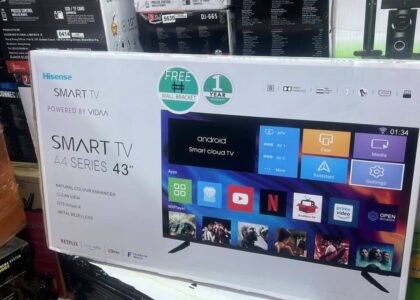In Nigeria, the issue of power supply is one that has plagued the country for decades. As a result, many Nigerians have had to rely on electronic appliances such as generators, inverters, and voltage stabilizers to keep their homes and businesses running. However, understanding electronic power voltage can be a daunting task for beginners. In this guide, we’ll take you through the basics of electronic power voltage and how to choose the right appliances for your needs.
What is Electronic Power Voltage?
Electronic power voltage is the measure of the strength of an electrical current that flows through an electrical device or appliance. In simpler terms, it is the amount of electrical energy required to power an appliance. This is measured in volts (V).
Understanding Voltage in Nigeria
In Nigeria, the standard voltage is 220-240V, with a frequency of 50Hz. However, due to the unstable power supply, voltage fluctuations are common. These fluctuations can cause damage to electronic appliances, which is why it is essential to have a good understanding of electronic power voltage and how to manage it.
Choosing the Right Voltage Stabilizer
A voltage stabilizer is a device that regulates the voltage coming from the mains to protect your electronic appliances from voltage fluctuations. There are two main types of voltage stabilizers: the automatic voltage regulator (AVR) and the constant voltage transformer (CVT). The AVR regulates the voltage by controlling the input voltage, while the CVT regulates the output voltage.
When choosing a voltage stabilizer, it is important to consider the capacity of the appliance you want to protect. The stabilizer should have a capacity that is slightly higher than the total wattage of the appliances you want to connect to it.
Understanding Inverters and Generators
Inverters and generators are two appliances commonly used in Nigeria to provide backup power supply. Inverters convert DC power from batteries to AC power to power electronic appliances. Generators, on the other hand, use fuel (diesel or petrol) to power an engine that turns a rotor, producing AC power.
When choosing an inverter or generator, it is important to consider the power rating. The power rating is the maximum amount of power an appliance can handle. You should choose an inverter or generator with a power rating that is higher than the total wattage of the appliances you want to connect to it.
Using “De Pay Small Small” to Buy Electronic Appliances
“De Pay Small Small” is an online store that allows customers to buy electronic appliances and pay in installments. This service is especially beneficial for those who cannot afford to pay the full price of an appliance upfront. Customers can choose from a wide range of appliances, including refrigerators, air conditioners, washing machines, and more.
The payment process is straightforward. Customers can choose to pay in weekly or monthly installments over a specified period. To use the service, customers must provide proof of employment and a valid ID card.
Conclusion
Understanding electronic power voltage is crucial in Nigeria due to the unstable power supply. Choosing the right appliances and managing power voltage is essential to protect your electronic devices and ensure they last longer. “De Pay Small Small” provides a convenient way for customers to purchase electronic appliances without breaking the bank. With this guide, we hope you have a better understanding of electronic power voltage and how to choose the right appliances for your needs.













